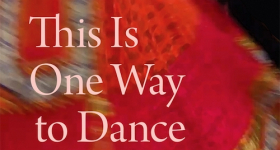I don’t know how he knows because we’ve never met, but as soon as he turns the corner Jeffrey Ma heads straight for me, says ‘Hi, I’m Jeff’ while extending his hand, and immediately suggests that we conduct the interview outside. Apart from quickly adding, "Unless you’re too cold…" he makes no small talk nor attempts any pleasantries, and he doesn’t smile.
Ma’s right-down-to-business attitude helps to explain his many successes. While recently selling his sports media company Citizen Sports to Yahoo!, Ma is best known as the blackjack whiz who inspired the book Bringing Down the House by Ben Mezrich and later the blockbuster Hollywood movie 21. The movie, adapted from the book, tells the story of Ma’s days as a member of an elite card-counting blackjack group at MIT that won millions from casinos.
The day of our interview, however, Ma was appearing at the Book Passage in San Francisco’s Ferry Building to promote his new book, The House Advantage: Playing the Odds to Win Big in Business. Essentially an introduction for non-experts to business analytics -- or as he prefers to call it, “using the past to predict the future” -- The House Advantage combines Ma’s love of gambling and sports to explain how statistical analysis can help in making decisions.
Despite being a math-averse lit geek who neither gambles nor follows sports and never plans to own a business, I liked the book. Ma explains complex concepts (conditional probability, anyone?) in simple, concise language. Additionally, the heady use of anecdotes to illustrate his points, especially those from his blackjack days, makes for good entertainment. My favorite chapter, “Why People Hate Math and What to Do with Them,” delves into the psychology of the rift between analytics advocates and resistors, while teaching them how to work together. And unlike a number of other business books glutting the market, which dumb down their topics to the point of being downright offensive, The House Advantage is elegantly written in way that presumes an intelligent reader. I felt smarter by the minute.
The book boldly rallies for a data-driven culture and rejects intuition-based decisions, in contrast to advice from some high-profile business people (former General Electric CEO Jack Welch’s bestseller Straight from the Gut, for example). Asked to explain his bias against intuition, a mildly exasperated look washes over Ma: “This whole idea of intuition is, like, so magical to people,” begins Ma’s tirade. “They want to hope that there’s some way that really intelligent people can just blink and then all of a sudden come to a conclusion that works. And, you know, unless you explain that to me scientifically, I don’t really believe it, and at the end of the day it’s not useful to me. The books that connect intuition and hard decisions don’t really tell you how people do that. What I tried to do instead is give people a framework to be able to make good decisions that so that everyone can start making better decisions and not have to rely on their stomach to do it.”
As we continued to chat, it became clearer through his candor that Ma was in fact an alright, low-key kind of guy. This prompted me, a newbie amateur journalist wannabe, to finally gather the courage to ask the question. The one about the pick of a white leading actor, Jim Sturgess, to play Ma in the movie 21. The question I didn’t really want to ask because I just wanted to forgive and forget the now two-year old controversy but which my editor-in-chief “suggested” that I ask.
“Jeff, I hate to ask, but --"
“I know what you’re gonna ask,” he interrupts.
“… I know it’s like beating a dead horse --"
“No, I do… I do want to talk about it --"
“Do you feel it was overblown?"
After some hesitation: “Yes and no.” Ma goes on to describe the lack of any control he had over the movie and how the project would have been easily dumped had he opposed the casting. And Ma wasn’t lying either. Producer Dana Brunetti has reportedly said, “If I had known how upset the Asian-American community would be about this, I would have picked a different story to film.”
Ma continues: “What I decided to do was just go with the studio and work with them so that they made me front and center to a lot of their PR campaigns to the point where I had a full page picture on the front of USA today, I was on the early show on CBS, and everyone who saw that saw that I was Asian American.”
Ma’s harshest critics, in particular Guy Aoki from Media Action Network for Asian Americans (MANAA), have lambasted Ma as a sellout and the movie as yet another example of Hollywood white-washing. Sadly, Aoki’s rebukes have not lost their relevance. In a case of déjà vu, the same exact criticism applies today to director M. Night Shyamalan’s The Last Air Bender, the blockbuster hit based on a cartoon about non-Western cultures. And rather unsurprisingly, the same defenses are being used by the film producers, namely, the “colorblind” selection of only the “best” actors, the lack of “bankable” Asian actors, and that the movies are fictionalized adaptations. The masked racism underlying these defenses has been made obvious by convincing arguments to the contrary, the best I could find being the article “Suspension of Disbelief” by Hannah Freeman.
Still, softened by having met Ma in person, the question in my mind is to what extent Ma can truly be held culpable for the white casting of Asian Americans given his lack of control over the movie? Could he have done more? Should he have insisted upon Asian American actors and risked losing the project?
Ma seemed ready to bury the hatchet: “I’m definitely sympathetic to the stereotype of the Asian male in our society, I mean, I’ve lived it my whole life, where the Asian male is considered to be nerdy, not able to carry a movie, and not cool. And it bothers me, it’s bothered me my whole life. And I do apologize if people feel like by being complicit in this situation that I was helping to continue to perpetuate that stereotype but all I can say is that I tried to do the best for Asian American males by doing something that would make me front and center of the PR campaign so that I was out there and people would see that I was Asian American.”
With a few minutes remaining before his bookstore appearance, I decided to end the interview on a lighter note and ask the other burning question: “Why do you think Asians love to gamble so much?”
“I think our culture likes risks, we like to understand risk and numbers. And it was great to have it all combined in the story of the Asian American male being able to beat the casino. I’m glad it had appeal to Asian Americans, anyone that knows me knows that that’s a big part of my life. My parents who are super close to me are immigrants from China and, you know, the values they instilled in me, making me do math camp in the summers when I was 7, 8, 9 years old, and supporting me is the reason I’ve had any level of success.”










Comments
I have a big problem with the way Jeff Ma let himself be used as an excuse during the PR media blitz leading up to the movie. It was really convenient for the movie studio to use Ma to tell all media organizations that the whitewashing of 4 major Asian American characters wasn't a big deal. Ma's own rationale in older interviews that he'd rather have his character be played by a talented actor rather than someone like Jackie Chan, is pretty weak and doesn't even make sense given how many talented Asian American actors are out there who don't even get a chance. Ma's public defenses of the casting further supported long-standing claims made by industry that there simply aren't any talented Asian American actors out there, legitimizing what was and continues to be a discriminatory casting process based on race.
Ma was used the same way Lucy Liu was paraded out to defend Rosie O'Donnell's "ching chong" incident, the same way Asian American wives were used to defend racist Hot97 New York City radio skits by their husbands, how Michelle Malkin is repeatedly used by extreme right wingers to defend WWII Japanese American internment camps, or how Abercrombie defended its racist t-shirts by saying they were co-designed by an Asian American. His role is no different from how Hollywood used M.Night to deflect all the controversy over the Airbender whitewashing, since he's of Asian descent. All of these individuals were similar in coming up with various rationales for themselves for why it made sense to help defend actions and behaviors that in history will probably end up being seen in a very different light.